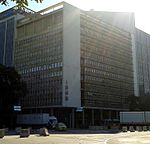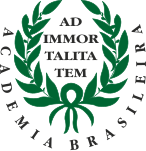Paris Square (Rio de Janeiro)

Paris Square (Portuguese: Praça Paris) is located in the Glória neighborhood, in the Brazilian city of Rio de Janeiro. Designed by French urban planner Alfred Agache, it was built on an embankment in 1926 during the administration of Mayor Antônio Prado Júnior. The project reproduced the layout of a typical Parisian garden and included a large number of large almond trees, works of art and sculptures.It originally extended from Rio Branco and Beira Mar avenues to Glória Street, but was reduced to accommodate the Marechal Deodoro da Fonseca Square. During the construction of the subway, the site was completely destroyed. In 1992 it was restored and reopened with railings to ensure its preservation. It is a popular destination for sportspeople and hikers, as the dirt road provides a good base for running. It is policed by the municipal guard and military police during the day and at night.
Excerpt from the Wikipedia article Paris Square (Rio de Janeiro) (License: CC BY-SA 3.0, Authors, Images).Paris Square (Rio de Janeiro)
Avenida Beira-Mar, Rio de Janeiro Glória
Geographical coordinates (GPS) Address Nearby Places Show on map
Geographical coordinates (GPS)
| Latitude | Longitude |
|---|---|
| N -22.915833333333 ° | E -43.175555555556 ° |
Address
Avenida Beira-Mar
Avenida Beira-Mar
22210-010 Rio de Janeiro, Glória
Rio de Janeiro, Brazil
Open on Google Maps










